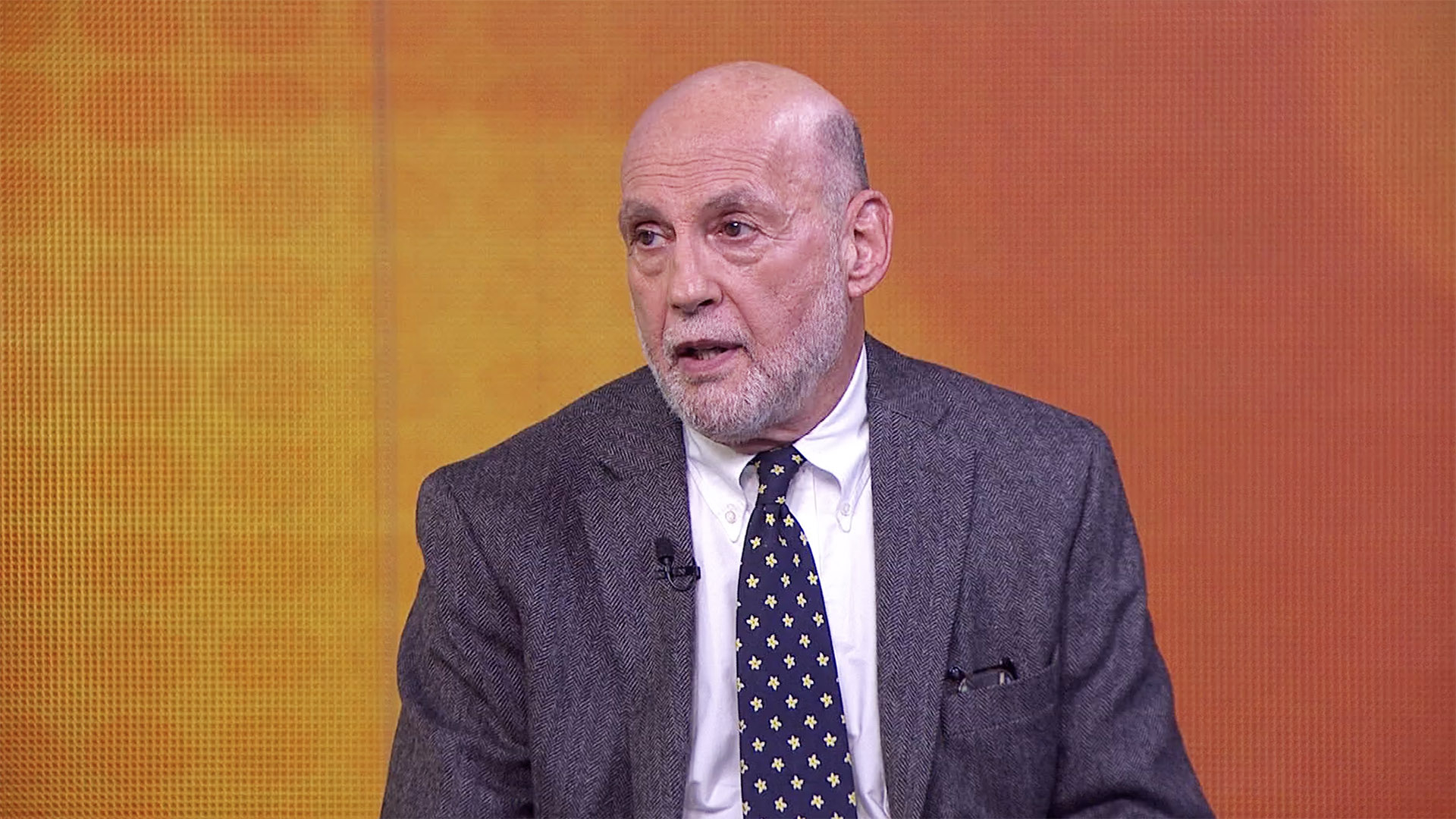
Opinions
20:19, 22-Nov-2018
Opinion: Will Trump's alliance with Saudi Arabia ensure American interests?
Updated
20:19, 25-Nov-2018
CGTN's The Heat

On Tuesday, U.S. President Donald Trump reassured the strength of his country's alliance with Saudi Arabia “to ensure the interests of our country, Israel and all other partners in the region because of its strategic importance.”
In the statement, Trump shunned the accusation that the Saudi Crown Prince, Mohammed Bin Salman (MBS), was involved in the plot of murdering Jamal Khashoggi.
The United States' strategic relationship with Saudi Arabia has a long history going back to the 1940s.
Jonathan Broder, a senior writer at Newsweek, refers to this relationship as the U.S. is putting all of its eggs of the Middle East in the Saudi basket.
01:47

There are no other alternative allies of the United States that can deliver a peace agreement between Palestine and Israel, serve as a regional leader of the Sunnis and cast pressure on Iran.
Though MBS is an unstable leader of his country, the U.S. still has its national interest in Saudi Arabia.
What Donald Trump should establish is a distinction between allying with the country and aligning with MBS.
Wardah Khalid, a Middle East expert and foreign policy analyst, shares her doubt that keeping the alliance with Saudi Arabia really serves the goal of “America First,” as Trump mentioned more than once in his statement.
She takes the proxy war in Yemen between Iran and Saudi Arabia as an example, and insists that the U.S. backing Saudi Arabia with arms sales is potentially causing more humanitarian catastrophes. What's more, she thinks that an alliance with Riyadh doesn't pay off.
On the contrary, Eric Bolling, an American conservative political commentator, advocates the decision to stand with Saudi Arabia as having the same significance of staying with Israel, and maintains the U.S. interests in the region.
Selling arms to Saudi Arabia is the same as selling arms to any other country. What is vital to the U.S. is the geopolitical situation of Saudi Arabia—it serves as a buffer between Iran and Israel and keeps Iran's army from invading Israel. Donald Trump is appealing via his statement to the people that hold a grudge against Iran.
Eleanor Clift, a political analyst with The Daily Beast, criticizes Bolling's view as “war-time” thinking, and said there will not be a war between Iran and Israel even if Saudi Arabia is not a strong ally with the U.S..
She suggests that there is a mixed message out of Trump's statement. The United States is no longer vulnerable to oil prices as before, and arms sales are not justifiable enough to reassure the close relationship with Riyadh.
Pushbacks from senators and congressmen have already reflected the debate of the U.S. national interests concerning Saudi Arabia.

A man holds an image of Jamal Khashoggi during a symbolic funeral prayer at the courtyard of Fatih mosque in Istanbul, Turkey, November 16, 2018. /VCG Photo
A man holds an image of Jamal Khashoggi during a symbolic funeral prayer at the courtyard of Fatih mosque in Istanbul, Turkey, November 16, 2018. /VCG Photo
Given solid facts from U.S. intelligence on the connection between MBS and Khashoggi's death, why does Trump refuse to take a stance on the murder?
Bolling suggests that the impact of the murder was exaggerated. Jamal Khashoggi was not a U.S. citizen, and Saudi Arabia was not involved in direct conflict with the United States. The United States should not break the alliance because of a murder case.
However, Broder questions the leadership of MBS and further doubts whether he has the power to align with the United States in the region. King Salman Bin Abdulaziz pulled back from the decision that MBS proposed to move the U.S. embassy to Jerusalem.
After Khashoggi's death, there have been rising voices questioning the future succession of the Saudi kingdom.
Due to the political uncertainty, Trump's statement did not use his current leverage against MBS. Instead, the statement seemed to be submissive to Saudi Arabia. Would this statement be a small concession before higher bidding? Or does the Trump administration already have full confidence in MBS's leadership in the future?
(Cover Photo: US President Donald Trump (R) shakes hands with Saudi Arabia's Crown Prince Mohammed bin Salman in the Oval Office of the White House in Washington, DC, March 20, 2018. /VCG Photo)
The Heat with Anand Naidoo is a 30-minute political talk show on CGTN. It airs weekdays at 7:00 a.m. BJT and 7:00 p.m. Eastern in the United States.
(If you want to contribute and have specific expertise, contact us at opinions@cgtn.com.)

SITEMAP
Copyright © 2018 CGTN. Beijing ICP prepared NO.16065310-3
Copyright © 2018 CGTN. Beijing ICP prepared NO.16065310-3